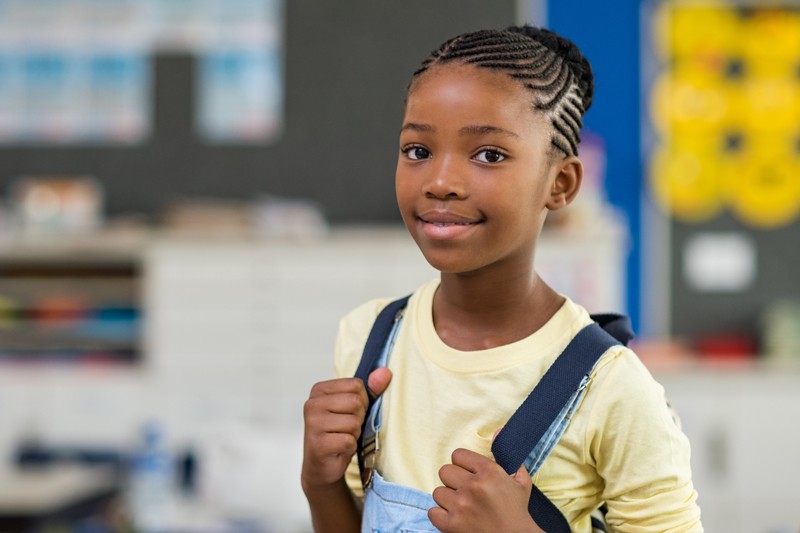UD researcher surveying Black girls to help reduce disparities

A University of Delaware researcher is surveying the experiences of Black girls in Delaware to better understand their lives and help community advocates develop targeted interventions to reduce disparities and help them succeed.
Tia Barnes, an assistant professor in the Department of Human Development and Family Sciences, is collaborating with the Delaware Chapter of the National Coalition of 100 Black Women Inc., Delaware Division of Public Health, Delaware State University, and Delaware-CTR ACCEL to survey more than 500 Black girls between the ages of 10 and 19 about their physical, social and mental wellbeing, as well as their resilience and support in the community. Funding for the project was provided by DPH, Partnership for Healthy Communities, NC100BW DE and Delaware-CTR ACCEL.
In addition to the survey, online focus groups will be held to gather information about what it’s like to be a Black girl between the ages of 10 and 19 living in Delaware. More than 700 black girls have already completed the survey and another 80 are expected to be part of the focus groups for girls in New Castle, Kent and Sussex counties.
For information about participating in the survey or focus group, text (302) 709-1277 or email delawareblackgirls@gmail.com.
“From this research we are going to be able to better support Black girls wherever they are,” said Barnes, who is principal investigator for the research study, and also a researcher in the Center for Research in Education and Social Policy.
This multi-method study is the first of its kind to look exclusively at Black girls in Delaware, said Raye Jones Avery, president of the National Coalition of 100 Black Women Delaware chapter. In 2018, the chapter released a report, “The State of Our Union: Black Women and Girls in Delaware,” that highlighted the disparities experienced by Black women in education, employment, health and government leadership roles.
“Having a better understanding of the issues that challenge Black girls from an early age will lead to the policy responses and re-imagined services designed to empower and support our girls across their lifespan,” Jones Avery said. “Many Black girls haven’t had the chance to lead strategic conversations about themselves, so it’s a ground-breaking racial justice opportunity.”
“The lessons learned and the information shared will be used to catapult action around better meeting needs as they have been defined by the girls themselves,” Jones Avery added. “Also, we aspire to drive better collective impact among entities that target Black girls. We plan to build on the assets they articulate and address challenges as they define them. We want to know how we can foster their healthy development.”
Historically, Barnes said, research has not focused on Black girls and their lives. A 2017 report by the Georgetown Law Center on Poverty and Inequality found that Black girls are viewed as less innocent than white peers and more likely to be seen as older than their age by adults. Other research has shown that Black girls are more severely punished in school in comparison with their peers.
“There’s definitely a need for this work. Like any population, Black girls are diverse. They have different experiences,” Barnes said.
Jones Avery said she hopes the survey and focus groups will help present a fuller picture of life for Black girls in Delaware. She expects diversity in their responses, based on their ages and geographic location.
So far, the response to the survey has been overwhelmingly positive, with a larger than expected response, particularly from those ages 14 to 16. Barnes said they are hoping to hear from more girls in the 10-13 and 17-19 age group in New Castle and Sussex counties.
As part of the collaboration, the research team is working with UD’s Center for Drug and Health Studies to analyze previous data. Student scholars from DSU also will be producing white papers looking at literature that exists about Black girls.
Jones Avery said the research project has been crafted not only to listen to Black girls but to celebrate them as well. The goal is to have Black girls be involved in creating videos, art and other products that showcase the results of the research.
“Black girls need to see themselves,” Jones Avery said. “When young people see themselves and realize they are not invisible, it evokes a very different response.”



